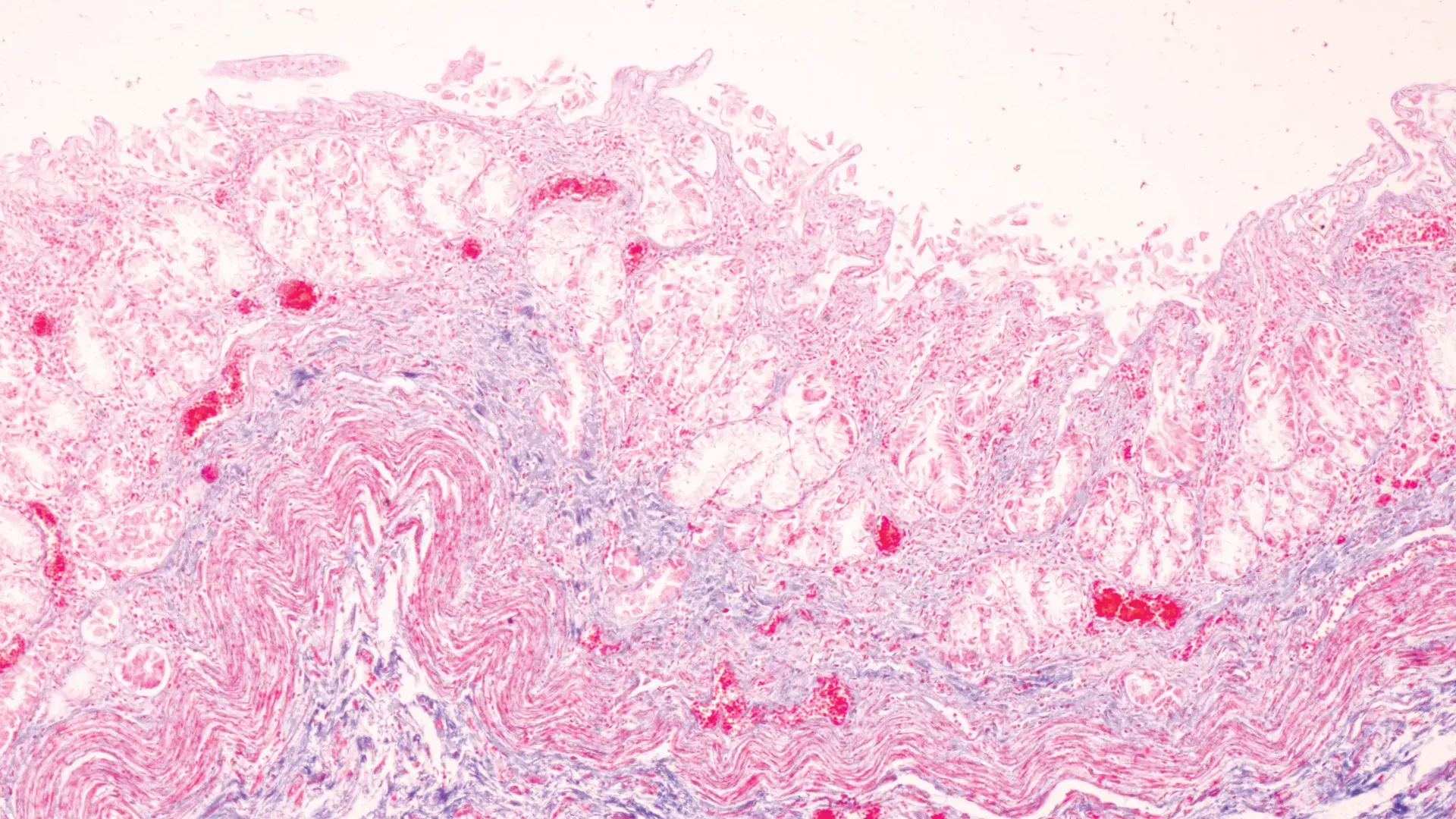4 Questions On NAD/NADH Testing Answered
Unlocking the Secrets of Cellular Energy
6 min read
![]() Dr. Chris Meletis, ND
:
January 14, 2020 at 2:02 PM
Dr. Chris Meletis, ND
:
January 14, 2020 at 2:02 PM

Prior to starting my patients on any weight loss regimen, there are three tests I always employ. These tests are extremely important to ensure the success of immediate weight loss as well as sustained weight loss over time. They also are necessary to make sure fat loss is occurring safely, without a flood of toxins being released into the patient’s body.
Here are the three tests critical for an optimal weight loss and weight maintenance program:
The mitochondria play an underappreciated role in weight loss. Testing to gauge the health of patients’ mitochondria can lead to a greater degree of success in any weight loss regimen. One effective way to determine mitochondrial health is through an Organic Acids Profile. This test can indicate the state of a patient’s citric acid cycle, otherwise known as the Krebs Cycle or tricarboxylic acid (TCA) cyclic. The citric acid cycle is a series of chemical reactions that lead to the mitochondria’s production of adenosine triphosphate (ATP), the universal energy molecule.
The success rate of low-calorie diets may depend upon genes regulating the citric acid cycle and oxidative phosphorylation, the mitochondrial pathway that produces ATP. A low-calorie diet was more successful at reducing insulin secretion after an oral-glucose-tolerance test in a group of people who were able to maintain weight loss. In people who tended to regain weight after the low calorie diet, insulin secretion was not reduced. Genes regulating fatty acid metabolism, the citric acid cycle, and oxidative phosphorylation were regulated differently in people who maintained their weight loss and people who gained the weight back.1
In another study, obese people who gained weight easily experienced a downregulation of weight-loss-related pathways operating in the mitochondria including the citric acid cycle and the electron transport chain compared to lean people who were resistant to weight gain.2
The mitochondria are also involved in thermogenesis,3 the process of burning calories to generate heat. Mitochondria are potent producers of heat and safely metabolize fat.3 During dieting, decreased thermogenesis limits fat loss.4 The mitochondria regulate brown fat genes.3 Brown fat is a site of thermogenic adipocytes (fat cells) that transform chemical energy to heat. There are abundant mitochondria in brown fat, and the thermogenic activity of this type of fat is attributed to the presence of these mitochondria.3 This is why it’s important to identify your patients’ biochemical obstacles to peak thermogenesis, especially mitochondrial impairments. An Organic Acids Profile can help shed light on mitochondrial function.
Before recommending a specific diet to a patient, it is critical to order a Food Sensitivities Panel. Food intolerances caused by IgG antibodies can lead to a state of low-grade inflammation in obese people that interferes with weight loss.5 IgG-mediated reactions are not true allergies. They are delayed type hypersensitivity reactions. In other words, the symptoms are often not immediate. They can appear hours or even days after eating an offending food. Therefore, the symptoms are not attributed to the food.
Research now indicates that putting overweight and obese patients on an elimination diet based on a Food Sensitivities Panel can lead to more significant gains in weight loss.5 Researchers studied 82 patients 18 to 65 years old who had a body mass index of 25 kg/m2 or greater.5 All of the patients were given a food intolerance/food sensitivities test, but only some of the patients were put on an elimination diet based on test results. This group of patients did not consume the foods they were shown to be sensitive to in the testing. The control subjects who were not put on a food intolerance elimination diet underwent a dietician-supervised weight loss program. The subjects in the food intolerance diet group lost more weight and more body fat weight compared to the controls. There was also a pronounced decline in triglyceride levels in the patients on an elimination diet compared with controls. The researchers concluded, “In this study, people who cannot lose weight by low-calorie diet can lose weight and fat with elimination diet according to the results of FI [food intolerance] test.”
This study indicates that when creating a weight loss regimen for a patient, suggesting a potentially problematic food for his or her unique biochemistry and immunology is the ultimate faux pas.
Food intolerances can also lead to increased intestinal permeability (leaky gut). The intestinal epithelial lining and factors secreted from it create a barrier to prevent the passage of toxins, antigens, and bacteria in the lumen from entering the bloodstream while allowing for optimal nutrient absorption. When this barrier is compromised, it leads to a leaky gut.
Impaired gut barrier function leading to leaky gut is involved in the development of food allergies/intolerances. Increased intestinal permeability allows undigested food particles to translocate into the bloodstream, where the immune system launches an assault on what it perceives to be a foreign, harmful substance. Conversely, food allergies/sensitivities play a role in the development of intestinal permeability.6 Exposure to food components such as gliadin from wheat upregulates zonulin. 7-9 Dysregulation of zonulin impairs intercellular tight junctions, which are involved in gut barrier function. This ability to upregulate zonulin is an indicator that food antigens are involved in intestinal barrier dysfunction.
Preclinical studies show improving leaky gut can reduce body weight gain after eating a high-fat diet and protect the liver from the effects of a high-fat diet.10 Probiotics that protect against leaky gut caused by a high-fat diet also reduce obesity, insulin resistance, and non-alcoholic fatty liver disease in rodents.11
Leaky gut can also lead to “leaky brain.” Intestinal permeability associated with IgG-dependent food sensitivity is associated with the development of depression.12 This impaired emotional outlook can interfere with a patient’s desire to participate in activities associated with weight loss, such as healthy dieting and exercise.
A third test that can increase weight loss success is the Environmental Pollutants Profile, especially when added to an Organic Acids Profile. Environmental pollutants are important in weight loss on two levels. First, they can actually cause weight gain. For example, exposure to phthalates is associated with increased body mass index, waist circumference, low-density lipoprotein cholesterol (LDL-C), triglycerides, and glucose in serum.13
Phthalates are pervasive throughout the environment. We’re exposed to them through many sources including table cloths, floor tiles, furniture upholstery, shower curtains, garden hoses, food packaging, medical tubing, hair spray, nail polish, pesticides, tooth brushes, and aspirin. This constant exposure may be contributing to the obesity epidemic.
The second way in which environmental toxins affect weight loss is through the release of toxins from fat cells that occurs when a person loses weight. This mobilization of toxins during weight loss is one of the reasons yo-yo dieting doesn’t work. It backfires because each time weight is gained and then lost again it liberates more toxins from fat cells.14 In obese people with high levels of polychlorinated biphenyls, those with the highest fat mass actually had lower mortality compared to those with lower fat mass.14 According to the study authors, “Although weight loss may be beneficial among the obese elderly with low POP concentrations, weight loss in the obese elderly with higher serum concentrations of POPs may carry some risk.”
Toxins also worsen food sensitivities and leaky gut, sabotaging short-term and long-term sustained weight loss.
Although patients and their health care practitioners are eager to begin a weight loss program, optimal success and safety is achieved when the patients undergo an Organic Acids Profile, Environmental Pollutants Profile, and a Food Sensitivities Panel before beginning their regimen. These tests can also pinpoint why certain patients are not successfully losing weight using their current weight loss strategy. These three tests can lead to changes in their regimen that will make it easier to achieve success.

Unlocking the Secrets of Cellular Energy

Short chain fatty acids (SCFAs) are organic acids produced by bacterial fermentation of dietary fibre and resistant starch. Enterocytes and...

Zonulin has emerged as a popular marker to assess the integrity of the intestinal mucosal barrier. Discovered by Dr Alessio Fasano, Zonulin...